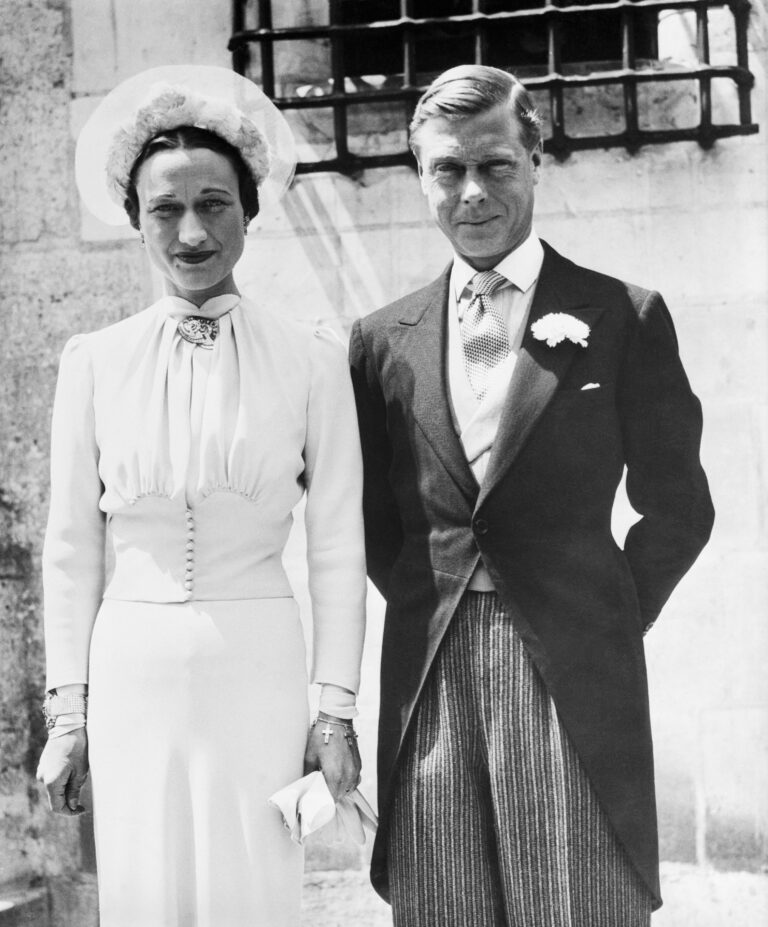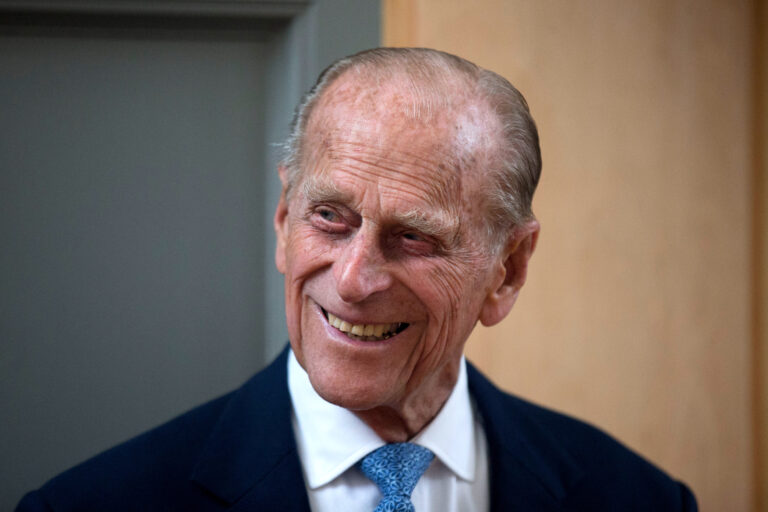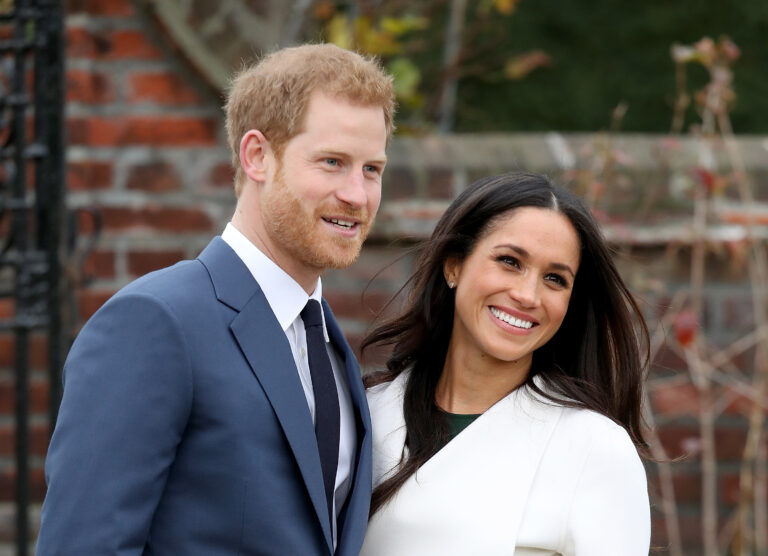According to a royal expert, the late Prince Philip had a rather pointed nickname for the Duchess of Sussex, and it wasn’t so kind.
The nickname suggested a comparison to Wallis Simpson, the controversial wife of the former King Edward VIII, drawing parallels between Meghan Markle and Wallis, both American and divorced when they married into the royal family.
Prince Philip supposedly referred to Meghan with a name that made reference to this connection.
Wallis Simpson and King Edward VIII
Wallis Simpson, an American divorcée who became the Duchess of Windsor, was one of the most controversial royal figures in recent history after King Edward VIII decided to abdicate the throne in December 1936 (after less than a year as a monarch) to be able to marry her.

At the time, royals were prohibited from entering into a marriage with a divorced person – a rule that did not change until 2002, just three years before the then-Prince Charles married Camilla, per the Royal Observer.
Following King Edward and Wallis Simpson’s marriage, they were not allowed to return home without the permission of his brother, the new King George VI, as there were fears it could potentially cause public unrest, Vogue detailed.
During their years of exile, the Duke and Duchess of Windsor constantly attracted headlines – with one of their most shocking incidents occurring in 1937 when they visited Nazi Germany and were photographed giving the notorious Nazi salute upon meeting Adolf Hitler.
Prince Philip’s brutal nickname
Royal biographer Ingrid Seward shed light on Prince Philip’s perspective during an interview with GB News, suggesting that he thought Meghan and Wallis Simpson had many similarities, leading to the adoption of a discreet nickname for the Duchess of Sussex.
Allegedly Prince Philip, who Seward says was known for his astute judgment of character, couldn’t overlook the resemblances between Meghan and Prince Harry and Edward and Mrs. Simpson.

“I think that Prince Philip was very canny about people and he didn’t always see bad in people, he often tried to see the good in them,” Seward said.
“He just could not get away from the similarities between Meghan and Harry and Edward and Ms Simpson, which his why he used to call her the Duchess of Windsor. Not to her face though, he used to call her DOW,” she added.
In her book ‘My Mother and I‘, Seward delved further into Prince Philip’s reservations about Meghan, describing him as “wary” of the former Suits actress and her potential impact on the royal family.
While Prince Philip saw Meghan as potentially disruptive, Queen Elizabeth II held “high hopes” for her, indicating differing perspectives within the royal family regarding Meghan’s role and influence.

Prince Harry and Meghan Markle left royal life
Since stepping back from their royal duties in 2020 and relocating to California, Meghan and Harry have maintained a relatively low profile within the royal sphere.
While Harry is set to visit the UK for the 10th anniversary of the Invictus Games, with a service to be held at St. Paul’s Cathedral on May 8, according to the Daily Express. Meghan is expected to remain in the US, citing safety concerns and a desire to avoid stirring up controversy.
Despite occasional returns to the UK for significant events like Queen Elizabeth II’s funeral in 2022, Meghan has opted out of attending others, such as King Charles III’s coronation, which Harry attended alone last year.
It’s clear that Meghan is choosing to prioritizing her safety and peace amidst constant scrutiny and public interest in her relationship with the royal family.
What did you think of this story? Be sure to let us know in the comments!
Vet reveals the shocking reason you should never hug your dog

A vet has warned how a ‘hug’ can make a dog feel, and it’s not necessarily what you would expect
A vet has warned that it could be a bad idea to ‘hug’ your dog, as it could have the opposite effect on them to what us humans feel.
There’s nothing nicer than coming home from a long day at work to your furry friend scurrying as fast as they can to the door to greet you.
Your natural reaction is usually to bend down and give them a big cuddle, and whilst it might look like they’re loving every second – it might not be what they’re really feeling.
Dog experts are now warning owners to find different ways of showing their love.

According to a vet who spoke to Psychology Today, a hug can actually make a dog feel quite anxious and trapped – this is because a dog’s primary defence is to run away.
Psychologist Stanley Coren explained: “Yes, your dog may leap into your lap and kiss your face, cuddle against your neck, and beg you to rub her belly.
“But that’s not ‘hugging.’
“In my experience, many dogs don’t enjoy having a human move one or two arms around their shoulders and squeeze.
“That’s the hug we are talking about.”
Behaviour Vets author Lauren Novack believes dogs who do enjoy hugs are a complete ‘exception’, reports Daily Paws.
She said: “When dogs don’t like something and politely ask for space over and over again to no avail, they’re likely to escalate their communication to growling or biting.
“I don’t want dogs to be stressed, and I don’t want humans to get bitten. For most dogs, hugs are stressful.”

Stanley previously analysed 250 photos of dogs being given hugs, and he found that in 80% of the images, the dogs showed signs of looking stressed.
And he noted that this can be indicated by a dog lowers their ears, closing their eyes, or turning away from the source of anxiety.
And the psychologist has now revealed some much better alternatives.
He said: “The clear recommendation to come out of this research is to save your hugs for your two-footed family members and lovers.
“It is clearly better from the dog’s point of view if you express your fondness for your pet with a pat, a kind word, and maybe a treat.”
And the last thing we want to do is upset our furry babies, so we’re definitely going to take this advice on board!



Leave a Reply